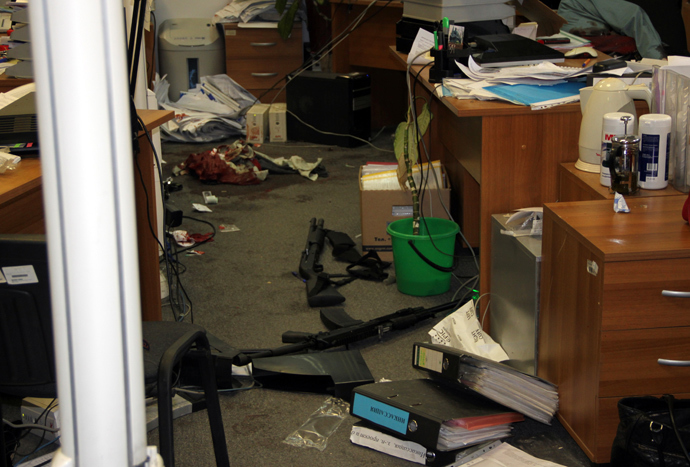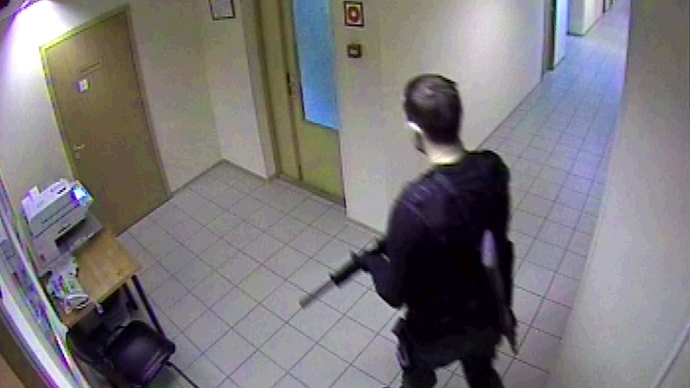Humanity-hating ‘Russian Breivik’ sentenced to life in jail
A Russian lawyer, who gunned down six people last year after leaving a hate manifesto online following a breakup with a girlfriend, was sentenced to life. On the day of the massacre he intended to continue killing until he ran out of his 150 rounds.
A Moscow city court ruled on Monday that the highly dangerous Dmitry Vinogradov should spend the rest of his life in a high-security penitentiary facility.
The fatal shooting on November 7, 2012 happened in an office of a pharmacy store chain. Vinogradov, one of the company’s lawyers, brought some tactical gear, a carbine and a hunting shotgun and plenty of rounds from home.
The 30-year-old first killed a job applicant, who happened to be in the office, then turned the weapons on his colleagues. He killed five people on the spot and seriously wounded two others. One of the injured victims died in hospital the next morning.
“Vinogradov said during questioning that he planned to spent [spend] all the 150 rounds he brought with him on that day,” spokesman for the Investigative Committee Vladimir Markin told journalists. “He later confessed that his only regret was about not killing enough [people]”

Prior to the shooting the killer had spent five days drinking alcohol, he later told investigators. Hours before going postal, Vinogradov published a hate manifesto on his social network page, dismissing humanity as “genetic junk” and stating that the only way he can make his existence worthwhile is by taking down as many people as he can.
The message of misanthropy made the media compare Vinogradov with Anders Breivik, the notorious Norwegian mass murderer, who killed 77 people and injured more than 300 in 2011. He too left an online manifesto, calling for a crusade on Muslims, liberals and other groups he deemed unworthy of living.
According to prosecutors, the Moscow pharmacy shooting would have claimed more lives, if Vinogradov had not been distracted by the man he had just injured, who rushed the shooter as he was trying to reload and gave time for security to arrive and overpower the assailant.
The crime was prepared over the course of some 12 months, investigators said. Vinogradov acquired a gun permit, purchased the firearms and ammo and underwent training courses to improve his shooting skills. The effort apparently paid off, since he managed to kill his five initial victims with precise shots to the head.

The killer told police that he started planning the massacre after a breakup with his girlfriend, who worked in the same office, but was not among Vinogradov’s victims. He told investigators that he wanted to impress the girl with his “world-changing” murders.
He also claimed that he wanted to kill himself rather than be arrested, leaving his manifesto as a suicide note. He requested to be executed for his crimes during the trial, so the judge had to explain to him that Russia has a moratorium on capital punishment.
Vinogradov will pay damages to families of his victims totaling $300,000 and a fine of $9,000 for publishing his manifesto, the court ruled.
He will also be treated by a prison psychiatrist. The defense asked for this treatment, although it requested that it be conducted at a psychiatric clinic rather than in prison, and argued that the defendant’s mental problems and record of disorders should be a mitigating factor in the trial.
A psychiatric evaluation ordered by the court found that the killer could be held responsible for the crimes despite lack of mental stability.














